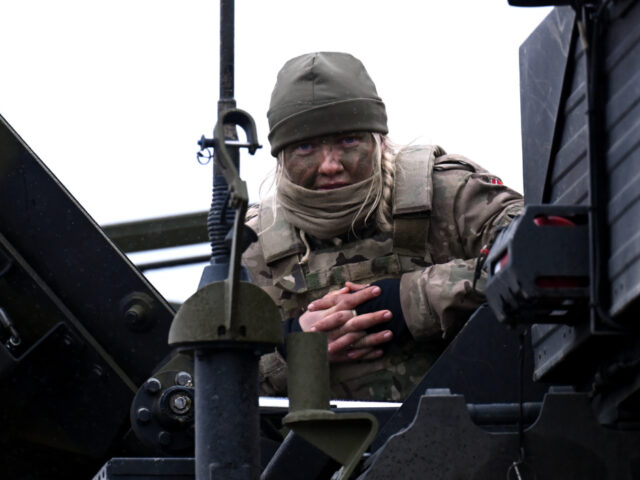Denmark is extending conscription, more than doubling the period of mandatory service, calling up more young people, and requiring women to enrol in the lottery for selection for the first time.
Women are to be conscripted into the Danish armed forces, as the nation’s leadership says it is seeking to deter aggression by being better prepared for war. Under the plan, which wouldn’t come into force until 2026, mandatory military service would dramatically increase from four months to 11, encompassing five months of training followed by six of service.
Denmark’s Prime Minister Mette Frederiksen said protecting the nation is an honour for those conscripted, saying: “We do not rearm because we want war. We are rearming because we want to avoid it… we propose full equality between the sexes.” The Foreign Minister emphasised Russia does not pose a direct threat to Denmark, but expanding the military now is about preventing “ourselves [coming] to a place where they could come to do that”.
Defence minister Troels Lund Poulsen says the European security situation “has become more and more serious, and we have to take that into account when we look at future defense… a broader basis for recruiting that includes all genders is needed.”
As things stand presently, all men are required to report to a military depot on ‘Defence Day’ to be physically assessed to determine whether they are fit for callup, and then entered into a lottery. Although millions of people in Denmark are technically eligible to be conscripted, actually the nation’s military is one of the smallest in Europe and only around four thousand people are presently in mandatory service at any one time.
Under the plan, women aged 18 would also be obliged to attend Defence Day and enter the service lottery.
Between the increase in length of service by more than double, and a slight increase of the total number of conscripts by 300, the number of people serving in the Danish armed forces is forecast to grow by a not inconsiderate proportion in the coming years, leading those presently serving to ask whether the force is capable of absorbing more conscripts. The Danish Broadcasting Corporation reports there is already a shortage of housing, equipment, and senior soldiers in the armed forces, all of which would be put under extra pressure by the arrival of more recruits.
A military sergeant cited by the paper said of the plan: “As it looks right now, it will be a challenge to accept all the conscripts… I am absolutely sure that it will have a knock-on effect on the quality of the education. It’s a bit like in primary school. If there are not enough primary school teachers for the classes, then there is simply less time for each student.”
Denmark will not be the first European state to switch to a gender-neutral draft. Sweden, having abolished the draft in 2010 brought back conscription in 2017 and extended the callup to both men and women in response to growing Russian aggression.
Norway became the first NATO state to conscript women when it changed the law in 2013.
Other states abolished conscription but in the new world of worsening European security, are considering bringing it back. Germany ended conscription in 2011 but have since called that “a mistake”, and their defence minister has said he’s looking at the Swedish model — which is like the Danish — where all young people are eligible, but only a handful are called up a year.
In the German case, this would be legally possible because while conscription was suspended in 2011, it was never technically taken out of the constitution, meaning it could be reactivated at any time, even if there would be political pushback. Defence Minister Boris Pistorius said last year he needed to consider all options. The United Kingdom is also seriously struggling with military recruitment and has done for many years, leading to former Defence Minister Ben Wallace saying last year he was “envious” of Sweden, and would “love to have” such a conscription model.

COMMENTS
Please let us know if you're having issues with commenting.